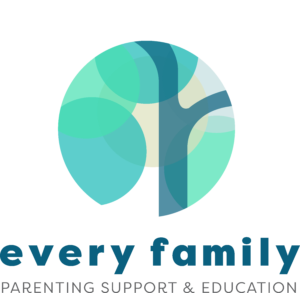
What are the Risks of Abortion?
If you’re considering abortion for your unexpected pregnancy, you deserve to know the truth about what to expect. Did you know there are definite side effects and several potential risks with each abortion method? Don’t choose this serious medical procedure without the facts. Here’s what medical experts have to say.
What are the Types of Abortion?
There are two types of abortion, medical and surgical. Which method you qualify for is determined by how far along your pregnancy is. Medical abortion is performed if you’ve been pregnant for 10 weeks or less. If the gestational age is longer than 10 weeks, you’ll have an in-clinic surgical abortion.
Medical Abortion
You may have heard about one method of medical abortion called the abortion pill. Contrary to its name, the abortion pill isn’t just one pill and it’s over. You actually take a series of powerful drugs over 24 to 48 hours.
The Mayo Clinic says, “Having a medical abortion is a major decision with emotional and psychological consequences. If you’re considering this procedure, make sure you understand what it entails, side effects, possible risks, complications, and alternatives.”
Side Effects and Potential Risks of Medical Abortion
Here’s a list provided by the Mayo Clinic of side effects and potential risks:
- Incomplete abortion, which may need to be followed by surgical abortion
- A viable pregnancy if the procedure doesn’t work
- Heavy and prolonged bleeding
- Infection
- Fever, especially serious if longer than 24 hours
- Digestive system discomfort
- Abdominal cramping
Surgical Abortion
Once again, depending on how far along your pregnancy is determines the type of surgical procedure you’ll have. The procedures are more invasive the longer you’ve been pregnant.
Dilation and Curettage (D & C)
The Mayo Clinic provides detailed medical information on the side effects and risks of a D & C. This procedure begins after you’ve received general anesthesia. Afterward, your cervix is dilated (opened). Then, a surgical instrument called a curette is inserted into the uterus to remove the pregnancy. Curettes can be sharp or use suction (vacuum aspiration).
Side Effects and Potential Risks of This Type of Surgical Abortion
According to the Mayo Clinic, the side effects are fairly easy. They indicate you’ll feel mild cramping and spotting or light bleeding. However, they also list:
- Bleeding that’s heavy enough that you need to change pads every hour
- Fever
- Cramps lasting more than 48 hours
- Pain that gets worse instead of better
- Foul-smelling discharge from the vagina
In addition, surgical abortions run the risk of:
- Perforation of the uterus
- Damage to the cervix
- Scar tissue on the uterine wall
- Infection
You’ll also notice that the Mayo Clinic mentions abortion as having “emotional and psychological consequences” too. For some women, their emotional struggles after an abortion are devastating.
Let Us Assist You
At First Care, we can confirm your pregnancy with a lab-quality urine test at no cost to you. In addition, we offer free limited ultrasounds. Before scheduling an abortion, you need to know how far along you are if your pregnancy is growing, and where it’s located in your body.
We have four convenient locations that offer free and confidential pregnancy services. You deserve to know the facts and have your questions answered. Contact us today and let’s start the conversation.
Learn More
Can You Buy the Abortion Pill Online?
When we are faced with life’s most difficult challenges, we typically respond with emotion and action. We feel burdened and fearful about the challenge, but we also look for ways to overcome our challenges.
If you are facing an unplanned pregnancy, it is likely that you are feeling fear about the future. That feeling of fear is normal. Our team exists to offer services that calm your fears. We are always here for you.
In the 21st century, it seems as if everything can be delivered to our doorstep in a short amount of time. As you face this unplanned pregnancy, you may be wondering if the abortion pill can be ordered online, and delivered to your home.
Surprisingly, buying the abortion pill online is more complicated and riskier than you may think. It comes with significant warnings from medical professionals and is something we do not suggest due to the health risks. It’s incredibly important to know the facts.
What is the abortion pill?
The abortion pill is often thought of being a one-time pill consumption, but this is not the case. The abortion pill as actually two pills, composed of two different drugs that complete the medication abortion. Medication abortion is available through the first 10 weeks of pregnancy.
Mifepristone, the first drug, blocks progesterone, a hormone that causes the lining of the uterus to thin. Thinning prevents the embryo from remaining implanted and growing.
Misoprostol is the second abortion drug given in a medication abortion. Misoprostol causes the uterus to contract and expel the pregnancy through the vagina.
The first abortion drug is typically taken at a doctor’s office and the second at home 24-48 hours later. A follow-up appointment with a doctor is necessary, a week later, to ensure the abortion is complete (FDA).
Is it safe the buy the abortion pill online?
FDA Regulations
The Food and Drug Administration(FDA) has abortion pill regulations to protect the health of all women who are considering abortion. The FDA warns about buying the abortion pill online because it bypasses multiple safeguards created to protect you.
One of the primary concerns related to ordering the abortion pill online is the reality that the drugs do not have a specified origin or creator. When consuming any drug, it is important to only trust manufacturers and providers that are transparent about ingredients and processes. It is also vital to only trust providers that are transparent about side effects, and many online abortion providers fail to be transparent.
The dosage could also be less or more than the standard abortion pill approved by the FDA. This could be deadly and/or cause an incomplete abortion. Many of the online abortion pill providers are overseas and do not follow FDA guidelines.
When you purchase the abortion pill online, you aren’t able to receive consultation or oversight from a doctor. Due to alarming side effects, a qualified doctor should prescribe these pills.
What should I know about the abortion pill before buying it online?
Risks & side effects of the abortion pill
Potential risks of medication abortion include:
- Incomplete abortion, which may need to be followed by surgical abortion
- An ongoing unwanted pregnancy if the procedure doesn’t work
- Heavy and prolonged bleeding
- Infection
- Fever
- Digestive system discomfort
- Allergic reaction to the medication
Potential side effects of medication abortion include:
- Nausea
- Vomiting
- Fever
- Chills
- Diarrhea
- Headache
Ultrasound will provide needed information about your pregnancy
Additionally, it is best medical practice to receive an ultrasound before making a pregnancy decision. An ultrasound reveals where your pregnancy is located, if it is a viable pregnancy, and how far along you are.
The results of the ultrasound will also bring to your attention any potential health concerns, such as an ectopic or tubal pregnancy.
The staff at First Care Pregnancy Center promises to treat you with kindness, respect, and genuine care.
Schedule a no-cost, confidential pregnancy test with an ultrasound at First Care. Our medical staff is here to serve you with the information and services you need to make an educated pregnancy choice. Talk to us today to schedule an appointment.
Learn More
Will Insurance Cover The Abortion Cost?
Before panicking over the abortion cost, let’s look at what your options are. Just the thought of your girlfriend saying, “I think I’m pregnant” causes panic. Pregnant? It’s impossible to even imagine, but if you recently had unprotected (or maybe even protected) sex and her period is late, she could be pregnant.
Free Pregnancy Testing
You need to know a lot more than a positive result on a pregnancy test. Did she take the test correctly? Was it taken at the right time?
Start out with free lab-quality pregnancy testing at First Care Pregnancy Center. Our tests are 99% accurate and will verify the result of her at-home test.
Free Ultrasounds
A verified positive result on a pregnancy test is just the beginning whether you’re considering abortion or parenting. For either option, she needs to know how far along her pregnancy is.
Plus, there’s the possibility she’s already miscarried. The Mayo Clinic says up to 20% of known pregnancies end in a natural miscarriage. She could be getting positive results on pregnancy tests and no longer be pregnant. You need to find out if the pregnancy is viable (growing).
It’s also important to find out where the pregnancy is located. Although rare, sometimes pregnancy can form outside of the uterus which is extremely dangerous.
Abortion in Minnesota
In Minnesota, a patient must receive state-directed abortion counseling and then wait 24 hours before the procedure is provided. The parents of a minor must be notified before an abortion is provided, and the abortion can only be performed at or after viability if the patient’s life or health is endangered.
Abortion cost in Minnesota
The following are average costs and not necessarily particular to any one clinic.
Medication Abortion (11 weeks or less) $700
In-Clinic Suction Abortion (12-13 weeks) $745
In-Clinic Suction Abortion (14 weeks) $845
In-Clinic Suction Abortion (15 weeks) $945
Paying for the abortion
Insurance policies only cover the abortion cost for you or another person who is legally married to you or a dependent child. Insurance rules change from state to state and from insurance company to company.
Some insurance companies may cover the cost of an abortion. She can contact her insurance provider to verify coverage. She also needs to take her insurance information with her at the time of her appointment.
You have options
Abortion isn’t the only answer. When you come to First Care Pregnancy Center for her pregnancy testing and ultrasound, ask to speak with an options consultant. Walk into any one of our four locations or book your appointment online.
The fact that you are hoping to help her during this time is a great beginning. She will be glad to have you by her side. Let us help you, contact us today.
Learn More
What is the Abortion Pill?
No woman dreams of getting an abortion, but if you’re facing an unplanned pregnancy, you may feel like it’s your only option.
If you’re considering terminating your pregnancy using the abortion pill, it’s important to take time to learn about the medications used, when you may be eligible for the procedure, and what to expect after you’ve taken the pills.
What is the Abortion Pill and How Does it Work to End a Pregnancy?
The abortion pill, also known as a medical abortion, is a chemical procedure that utilizes two drugs, Mifepristone and Misoprostol.
The first pill, Mifepristone, is administered to end the body’s natural production of the pregnancy hormone called progesterone. Progesterone provides the pregnancy with nourishment and support and without it, the pregnancy will end.
Once the pregnancy ends, Misoprostol is used to force contractions, which will push the pregnancy tissue from the body.
Who is Eligible for the Abortion Pill?
In order for the pill to be effective, it must be taken within the first 70 days of pregnancy.
After that point, your pregnancy may be too developed and this could lead to an incomplete abortion and retained fetal tissue, which may require an emergency surgical abortion procedure.
Before you schedule an appointment for an abortion, it’s vital to confirm the gestational age of your pregnancy through an ultrasound scan. Your ultrasound scan will tell you how far along you are, where your pregnancy is located, and whether there are any health concerns that need to be addressed, such as an ectopic pregnancy.
First Care Pregnancy Center provides ultrasound scans, pregnancy testing, STD testing and treatment, community referrals, and more!
Where Does a Medical Abortion Take Place?
Mifepristone is typically administered at a doctor’s office or abortion provider location; however, Misoprostol, the second medication, is taken at home between 24-48 hours later. This means that the pregnancy is typically expelled at home.
Does the Abortion Pill Have Side Effects?
Yes — it is normal to experience side effects when taking the abortion pill.
The abortion pill process involves bleeding and cramping as the body contracts and expels the pregnancy tissue. In fact, it may be cause for concern if the pill does not cause bleeding and cramping, as this can mean the pregnancy is not properly exiting the uterus.
Additionally, women also experience side effects such as vomiting, abdominal pain, nausea, fever, chills, diarrhea, weakness, and fatigue.
Does the Abortion Pill Come With Severe Health Risks?
Yes — the abortion pill can be associated with severe health risks, including sepsis, infection, and hemorrhaging.
Is the Abortion Pill Right for Me?
Deciding what to do regarding an unplanned pregnancy can be a difficult process. In order to know if the abortion pill is right for you and avoid potential health risks, we recommend scheduling a free appointment to learn more about all your options.
First Care Pregnancy Center provides free pregnancy testing, ultrasound scans, and STD testing and treatment to confirm your pregnancy, assess your eligibility for the abortion pill, and determine if you are at risk for serious health complications.
We also provide free options counseling where we will provide you with unbiased information on all of your options and the many community resources available to you during this time.
As you make a choice for your pregnancy, the more information you have, the better! The staff at First Care Pregnancy Center is here to help you navigate this difficult decision and make the choice that’s best for you and your future.
Schedule an Appointment
Schedule your free appointment today!
Learn More
What’s the Difference Between Plan B and the Abortion Pill?
Are you experiencing some early pregnancy symptoms? A late period, tender breasts, and nausea can all be signs. If your pregnancy was totally unexpected, you may be thinking about either Plan B or the abortion pill. Is there a difference?
Plan B vs. the Abortion Pill
Plan B
Plan B is also known as the “morning-after” pill. It is considered an emergency contraceptive, but should never be used as a regular form of contraception. Plan B works to delay or prevent ovulation and fertilization. However, it’s not effective if an egg has already been fertilized.
According to the National Institute of Health, the morning-after pill doesn’t stop pregnancy if it’s taken on the day of ovulation or after ovulation. Since the actual date of ovulation is difficult to determine, there’s no guarantee that Plan B will work.
Plan B may not be effective if you’re overweight or obese, allergic to any of its ingredients or taking certain other medications.
Abortion Pill
The abortion pill is a medication method of abortion. It isn’t just one pill. The process actually uses two very powerful drugs, mifepristone, and misoprostol. The first drug, mifepristone, works to block a hormone called progesterone. This drug causes the uterine lining to thin and prevents the embryo from implanting and growing.
The second drug, misoprostol, causes the uterus to contract and expel the embryo through the vagina. This abortion method can only be used up to the 10th week of pregnancy.
Side Effects of Both
Side Effects for Plan B Include:
- Nausea or vomiting
- Dizziness
- Fatigue
- Headache
- Breast tenderness
- Bleeding between periods or heavier menstrual bleeding
- Lower abdominal pain or cramps
Side Effects for the Abortion Pill:
- Incomplete abortion, which may need to be followed by surgical abortion
- An ongoing unwanted pregnancy if the procedure doesn’t work
- Heavy and prolonged bleeding
- Infection
- Fever
- Digestive system discomfort
How We Can Help You
If you suspect you are unexpectedly pregnant, First Care Pregnancy Center is your best first step. We provide free lab-quality urine pregnancy testing that is 99% accurate. If the test is positive, First Care provides free limited ultrasounds to help you confirm a viable pregnancy, detect a fetal heartbeat, and estimate how far along you are based on fetal measurements.
Schedule an Appointment
Schedule your appointment at one of our four locations today.
Learn More
Abortion Pill Reversal
Did you know that there may be help for people that have taken the abortion pill and regret their decision? It may not be too late! Abortion Pill Reversal has worked for some, and it might work for you.
What is a Chemical Abortion?
In order to learn more about Abortion Pill Reversal, it’s important to understand what takes place during a chemical abortion. Known as RU-486, a chemical abortion is a two-step process with two different medications: mifepristone and misoprostol. Typically, a woman seeking a medical abortion will take the first medication, mifepristone, in the clinic or facility. This medication blocks progesterone, a natural hormone secreted by a woman’s body which is needed for the pregnancy to continue and baby to grow.
The second medication, misoprostol, is taken about 6-72 hours after the first medication is taken. This pill causes uterine contractions to expel the pregnancy. After taking the second pill, a woman will start bleeding and cramping within 2-24 hours.
What is Abortion Pill Reversal?
The first step in the process is an ultrasound to determine placement of the pregnancy, heart rate, and dating. In attempt to reverse a chemical abortion, a naturally occurring hormone called progesterone may then be prescribed.
Progesterone is necessary to sustain a pregnancy. Progesterone is prescribed either in pill form, an injection, or vaginally. Since the first pill in a chemical abortion blocks progesterone, the goal is to give the body extra doses of progesterone to lessen the effects of the abortion pill. Typically, the progesterone treatment continues throughout the first trimester of pregnancy along with frequent ultrasounds.
The goal in the initiation of the Abortion Pill Reversal process would be to have an ultrasound within 24 hours of taking the first abortion pill or mifepristone. However, there have been many successful reversals that were done within the first 72 hours of taking the abortion pill. Even if you are past 72 hours, please call the Abortion Pill Rescue Hotline at (877) 558- 0333. It might not be too late. Studies show that Abortion Pill Reversal has a 64-68% success rate.
Is Abortion Pill Reversal Safe?
Progesterone, the hormone given in the reversal process, has been safely used in pregnancy for over 50 years. Progesterone is even used in pregnancy for women that have repeated miscarriages or in women that may be going through infertility treatments. According to the Abortion Pill Rescue website, “A 1999 FDA review revealed no increased risk of birth defects in pregnant women taking progesterone.” Studies have shown that neither mifepristone or progesterone are associated with birth defects.
Are there side effects of Progesterone?
There are a few potential side effects which include lack of energy, sleepiness, dizziness, stomach discomfort, and headaches. Not every woman will experience these side effects. If a woman were to experience these side effects while taking progesterone, she should talk to her doctor for follow up.
How do I start the Abortion Pill Reversal process?
The first step is to call the Abortion Pill Rescue Hotline at (877) 558-0333 or call First Care Pregnancy Center at (612) 866-7643. You will be connected with a healthcare professional to see if reversal is possible. If reversal is possible, an appointment will be made for an ultrasound and to potentially start progesterone treatment.
All services at First Care Pregnancy Center are free and confidential. Our staff are ready and willing to help answer your questions and help walk you through the Abortion Pill Reversal process, judgement free. Do not delay, and call today if you have questions or would like more information.
Our Sources
“Reversal FAQ.” Abortion Pill Rescue – FAQs, Heartbeat International, 2021, www.abortionpillreversal.com/abortion-pill-reversal/faq
FDA Briefing Document NDA 021945 Hydroxyprogesterone Caproate Injection 1999
Learn More

Plan C: What is it?
What is Plan C?
COVID-19 changed a lot of things for a lot of people. In a season where many things have gone virtual, you may be finding yourself with questions about telemedicine, TelAbortion, and access to the abortion pill without having to see a doctor. You may have head of Plan C, but are wondering what it means?
If you have been searching for abortion options online, you may have stumbled upon Plan C. Plan C, founded in 2015, is a campaign to ensure everyone knows about abortion pills. What they are, how they’re used, and how people are accessing them in the US for a safe self-managed abortion.
Ordering abortion pills online may seem like a convenient and safe way to end your pregnancy. However taking abortion pills, or any drug, without a health professional’s oversight poses serious risks to your health now and in the future.
The U.S. Food and Drug Administration (FDA) only approves the abortion pill (which is made up of two different drugs: mifeprex and misoprostol) when prescribed and dispensed by health care professionals. They also warn people not to order these drugs over the internet. Online abortion pills bypass important safeguards designed to protect your health. Abortion pills have special safety restrictions on how it is distributed to the public. When ordering online, proper assessment for the safety of this drug can not occur.
The abortion pill or non-surgical (medical) abortion is an abortion method approved by the FDA for pregnancies up to 70 days after the last menstrual period. Without a confirmed ultrasound to determine the age of baby, the risk of taking the abortion pill past this recommended date could occur.
What to Do?
If considering an abortion, we highly encourage you to do your research. Find a place where you can get a lab confirmed pregnancy test and ultrasound to confirm pregnancy before deciding whether or not take the abortion pill.
At First Care Pregnancy Center, we do not provide nor refer for abortions. We do offer free and confidential pregnancy tests and ultrasounds. If this is something you would like before deciding to have an abortion, please give us a call!
Our Sources
https://www.fda.gov/drugs/postmarket-drug-safety-information-patients-and-providers/mifeprex-mifepristone-information
https://www.health.state.mn.us/people/wrtk/handbook.html
https://plancpills.org/about
Learn More
When Abortion Feels Like the Only Option
Finding out you’re pregnant can be overwhelming and scary, especially if having a baby wasn’t part of your plan right now. With the current uncertainty with COVID-19, even more complexity has been added to becoming pregnant. We have talked with many pregnant women who have felt alone, scared, and confused, uncertain of what to do with the idea of being pregnant and abortion feels like the only option.
If your pregnancy was unexpected you might be thinking “How am I going to make this work?” For many people, an abortion seems like an easy way to erase or undo the situation they are currently finding themselves in. While abortion may seem like an easy fix, abortion is not just a simple medical procedure. For many women, it is a life-changing event with significant physical, emotional, and spiritual consequences. Most women who have had an abortion say they wish they had been told all of the facts about abortion and its risks.
Your Options
Abortion: Did You Know?
An average abortion costs anywhere between $0-1,000 depending on the type of abortion and medical insurance. Depending on the gestational age of the baby, a non-surgical or surgical abortion may be performed. According to the U.S Food and Drug Administration (FDA) cramping and vaginal bleeding are expected side effects. In some cases, very heavy vaginal bleeding will need to be stopped by a surgical procedure, which has to be performed in a healthcare provider’s office.
Other common side effects of a medical abortion include nausea, weakness, fever, chills, vomiting, headache, diarrhea, and dizziness in the first day or two after taking the two medicines. For surgical abortions, possible complications include heavy bleeding (hemorrhage), infections, and incomplete abortions. In addition to physical complications, emotional side effects of abortion may be experienced as well. Long-term grief and loss is common with those who have had abortions, and support is essential during that time.
So what other options are there to consider?
Parenting: Support is Available
If you are considering parenting, you probably have a lot of questions. It is natural to feel some uncertainty as you try to imagine your life in a new way, and depending on where you are in life, you might be feeling overwhelmed as you try to figure out how you would parent. While being a parent is both challenging and rewarding, choosing to continue your pregnancy enables you to experience a baby growing inside of you all the way to the baby gradually developing unique characteristics, interests, and personalities. Having a baby is a lifelong commitment that takes love and patience. Take time to really consider what parenting would look like for you.
You don’t need to feel alone. Our professional staff at First Care are here to work with you to provide the resources and support you need to create a successful parenting plan. We offer support such as a parenting program (up to age 5), baby items such as diapers, wipes, and clothing, prenatal education classes, community resources, and grant and aid assistance. We desire to help you to make an informed decision and provide support should you decide to parent.
Adoption: Make a Plan Right for You
Adoption, just like parenting and abortion, is a significant, life-changing decision. Placing a child for adoption is a courageous and loving decision and perhaps making an adoption plan is an option you want to consider. There is a wide range of adoption options available, from closed adoptions to open adoptions and we encourage you meet with our staff and learn about adoption so you can make an informed decision.
If you are worried about the medical expenses related to continuing with your pregnancy, it is important to know that adoptive families or adoption agencies will usually assist with medical and living expenses. You can select the adoptive family based on your preferences, and you also decide what level of involvement you will have in your child’s life. You can choose whether the adoption is open, closed, or somewhere in between — based on your level of comfort and future plans.
If you’re thinking about adoption, we would love to connect and help guide you in this decision.
It is natural to be scared or hesitant about pregnancy, especially when you weren’t expecting it to happen yet. But we encourage you to take time to talk about your decision with your family and friends and consider all of your options before deciding on a plan.
If you want to talk about your situation and learn more about your options, contact our staff today.
https://www.fda.gov/drugs/postmarket-drug-safety-information-patients-and-providers/questions-and-answers-mifeprex
https://www.health.state.mn.us/people/wrtk/handbook.html
Learn More
Plan B: Is It Abortion?
Thinking you might be pregnant when you aren’t ready for a baby may have you considering Plan B, or the Morning After Pill, as an emergency contraceptive. If you’re wondering about the ethical complications of Plan B, wondering if it is abortion, or want to know more about how it works, you’ve come to the right place.
A study from Princeton University says this about emergency contraceptives, like Plan B:
To make an informed choice, women must know that [emergency contraceptives] … prevent pregnancy primarily by delaying or inhibiting ovulation and inhibiting fertilization, but it is not scientifically possible to definitively rule out that any of these methods, including breastfeeding, may inhibit implantation of a fertilized egg in the endometrium. At the same time, however, all women should be informed that the best available evidence is that the ability of levonorgestrel and ulipristal acetate ECPs to prevent pregnancy can be fully accounted for by mechanisms that do not involve interference with post-fertilization events.
If you’re unsure what that means, that’s okay! This article will break it down for you. We want to explain what Plan B is and how it works, so you can make an informed decision about your possible pregnancy. Let’s get started!
What is Plan B?
Plan B is one type of emergency contraceptive. Women typically use Plan B after unprotected sex or after the failed attempts of another birth control method: a condom breaks, a dosage of birth control gets missed, etc.
Plan B is available over-the-counter in most drugstores. A prescription is not required, and anyone of any age can buy it in-store or online. It typically costs $15 to $50, depending on the brand and where you buy it from.
How Does Plan B work?
How Plan B works is dependent on when a woman takes it. Therefore, before explaining how Plan B works, it’s important to understand a few key terms within a woman’s monthly cycle: ovulation, fertilization, and implantation.
- Ovulation occurs during the midpoint of a woman’s cycle when an egg gets released from her ovaries.
- Fertilization occurs after intercourse when a sperm enters a woman’s released egg. This is also called “conception.”
- Implantation occurs when a fertilized egg attaches to the uterine wall.
Research suggests that Plan B primarily interferes with the ovulation stage of pregnancy. Plan B does this by containing a high dosage of levonorgestrel, a hormone that essentially mimics progesterone. Progesterone is naturally produced in a woman’s body and gets released after ovulation to thicken the wall of the uterine lining to prepare for a fertilized egg and also maintain a pregnancy. If there is no fertilized egg, progesterone levels drop and your period begins.
Progesterone is found in both Plan B and birth control pills. However, Plan B is less effective when used routinely, and it should not be relied upon as a primary form of birth control. Plan B also contains a high concentration of levonorgestrel, which can lead to negative or acute side effects.
What About Ella? Is It The Same as Plan B?
Not exactly. Ella is another brand of emergency contraception that contains ulipristal acetate. Ella is only available by prescription, and it is recommended to take only once during a menstrual cycle. There have not been adequate studies to know if ulipristal acetate is safe or effective to take several times during a cycle. Taking Ella alongside Plan B can cancel the effectiveness of both.
Research says that the primary function of Plan B (levonorgestrel) is to interfere with ovulation, which can prevent fertilization. If a woman has unprotected sex after ovulation and takes Plan B, studies show that taking Plan B doesn’t lower a woman’s chance of getting pregnant.
Similarly, Ella (ulipristal acetate) interferes with ovulation, and studies have indicated that it can alter the endometrium, or the uterine lining. It’s inconclusive if this could prevent implantation of a fertilized egg. However, studies agree that neither emergency contraceptive will terminate an established, active pregnancy.
Here’s a quick comparison chart to show you the differences between Plan B and Ella.
| Plan B / Levonorgestrel | Ella / Ulipristal Acetate | |
| Offered Over-the-Counter | Yes | No |
| Prescription Required | No | Yes |
| Delays Ovulation | No | Possibly |
| Prevents Ovulation | Yes | Yes |
| Impairs Sperm Function | Possibly, at higher dosages | No |
| Compromises Uterine Lining | Possibly | Possibly |
| Inhibits Fertilization | Possibly | Possibly |
| Affects Implantation | No | Possibly |
| Interferes with Post-Fertilization | No | No |
| Terminates Active Pregnancy | No | No |
(Source: Study from Princeton University in 2019)
How Effective Is Plan B?
If taken within the recommended 72 hours (three days) of unprotected sex, Plan B has a 56% to 89% chance of preventing pregnancy. Again, this is dependent on when a woman takes the pill during her cycle, and at what point after unprotected sex she takes the pill. If she takes Plan B after ovulation or after the recommended time frame, she will likely experience a similar pregnancy rate than if she didn’t take emergency contraception in the first place. Some studies also indicate that Plan B may not work as effectively in women who are overweight.
Experts say that Plan B does not stop an active pregnancy, and the side effects it may have on an unborn baby are not well researched. For these reasons, a woman should not take Plan B if she suspects she is already pregnant.
What are Side Effects of Plan B / Levonorgestrel?
If a woman decides to take Plan B, here is a list of side effects she should be aware of. Common side effects of taking Plan B include:
- Nausea and Vomiting
- Dizziness
- Tiredness
- Headache
- Depression
- Abdominal Pain
- Breast Tenderness
- Spotting
- Cycle Changes (including heavy bleeding or timing irregularities)
These side effects usually last a few days. When it comes to cycle changes, her period may come sooner, later, last longer than expected, or she may bleed heavier than usual. If a woman’s period is a week or more late, she should take a pregnancy test.
Because the hormonal dosage in Plan B is much higher than what most women experience, some who have taken it experience severe side effects. Rare side effects can include:
- Vision changes
- Migraines
- Stroke
- Breast cancer
- Ectopic pregnancy
If a woman experiences severe effects from taking Plan B, she should seek professional medical assistance immediately.
Need Help Making the Right Decision?
If you would like support in making a decision about your unplanned pregnancy, we have friendly and trained staff who would love to speak with you about your options, judgement free. Feel free to call or text us at (612) 712-6113. You can also schedule a visit at one of our pregnancy centers in Minneapolis, Richfield, Rochester, or Saint Paul for a free consultation.
Like a non-judgemental friend, we are here for you! We will always have your best interest in mind as we help you sort through the pros and cons of your options. All our services are free and confidential for your benefit.
Learn More
What Does Abortion Cost in Minnesota?
Are you considering abortion as an option? Below you will find information on abortion costs and the different types of procedures in Minnesota.
If you are undecided about a plan for your pregnancy and you would like extra support, consider Options Counseling with one of our staff.
We always recommend taking time to get all the information about your options so you can make a well-informed decision about your pregnancy and your future.
Factors that Affect Abortion Cost:
- Stage of pregnancy. This means how far along you are in the pregnancy and how developed the baby is. This is best determined by having an ultrasound. Abortion clinics charge a fee for the ultrasound. Some pregnancy centers, like First Care, offer free ultrasounds.
- Insurance. Private insurances may cover the cost of an abortion. Many states do not cover abortion under Medicaid plans.
- Your state’s abortion laws. For instance, Minnesota has enacted the “Women’s Right To Know” informed consent law requiring that at least 24 hours before an abortion takes place, a woman must receive information about the medical risks associated with the abortion procedure, the gestational age of the unborn child, and the medical assistance benefits and child support payments available to her.
Minnesota Abortion Costs
In the state of Minnesota there are four different abortion procedures:
- A Medication Abortion (or the Abortion Pill): within 10 weeks of gestation
- Suction Aspiration/ Vacuum Abortion: 6-12 weeks gestation
- Dilation and Curettage: 13-16 weeks gestation
- Dilation and Evacuation: 17-21 weeks gestation*
*After 21 weeks you are unable to legally get an abortion in the state of Minnesota.
The cost of each abortion procedure varies and can have a range in price depending on which clinic/provider you see. Below is the typical range for abortion costs in Minnesota (without insurance).
| Abortion Pill | Vacuum Abortion | Dilation and Curettage Abortion | Dilation and Evacuation Abortion |
| $350-$675 | $600-$1000 | $850-$2550 | $1500-$2550 |
Please also be aware that the FDA highly discourages buying or procuring abortion medications online. Drugs from unknown sources can be dangerous and ineffective.
Women who receive one abortion procedure may also find that they’ll need another procedure for successful termination.
Explore Your Options at First Care
It is good to take time to think about your options. At our First Care centers we offer a variety of pregnancy related services for free to help you navigate your pregnancy journey and take time to explore your options.
While we do not provide or refer for abortion, our services are all free of charge and are a good first step if you are facing an unplanned pregnancy. Our medical staff can run a free pregnancy test for you—even if you’ve taken one at home.
If you are considering abortion, our sonographers can provide a free limited ultrasound to determine how far along you are and if your pregnancy is viable. In some cases, women experience miscarriages before they even have an abortion.
If you would like more information on our services or you would like to talk with one of our staff, connect with a location nearest to you or schedule an appointment online.
Learn More

